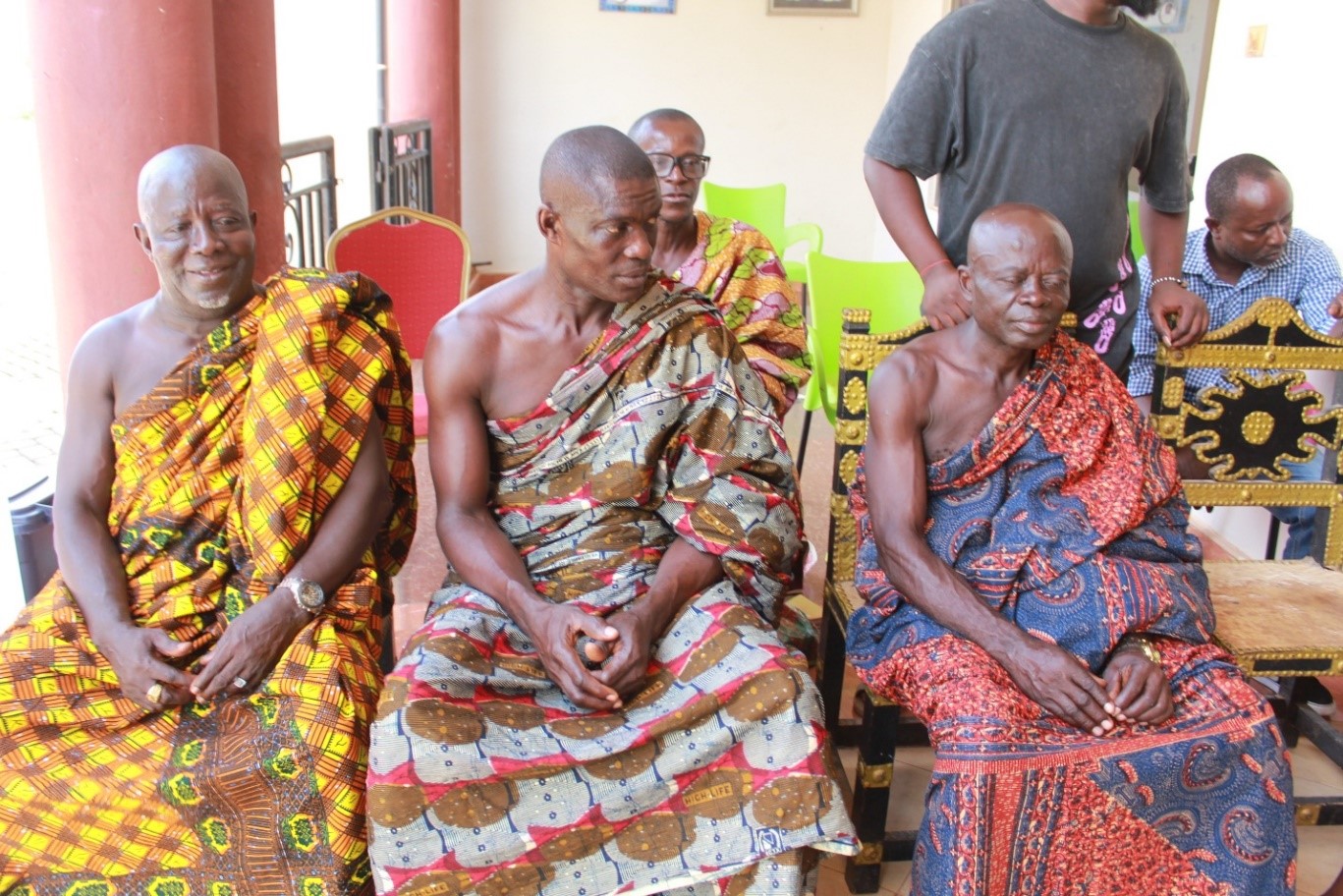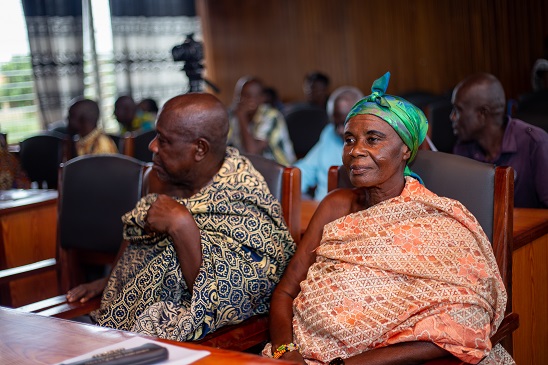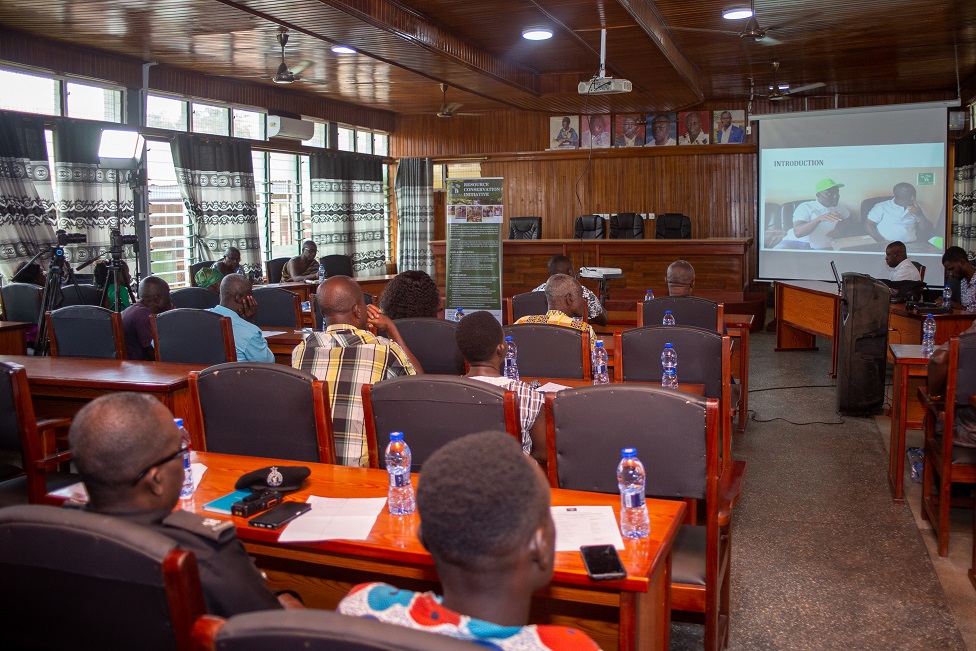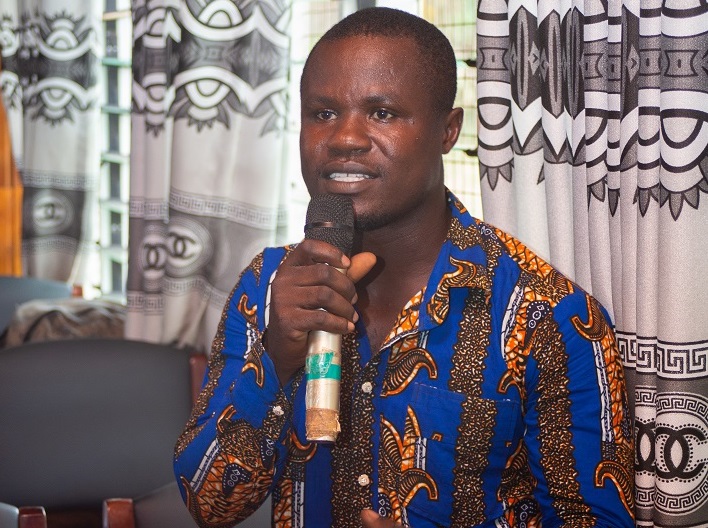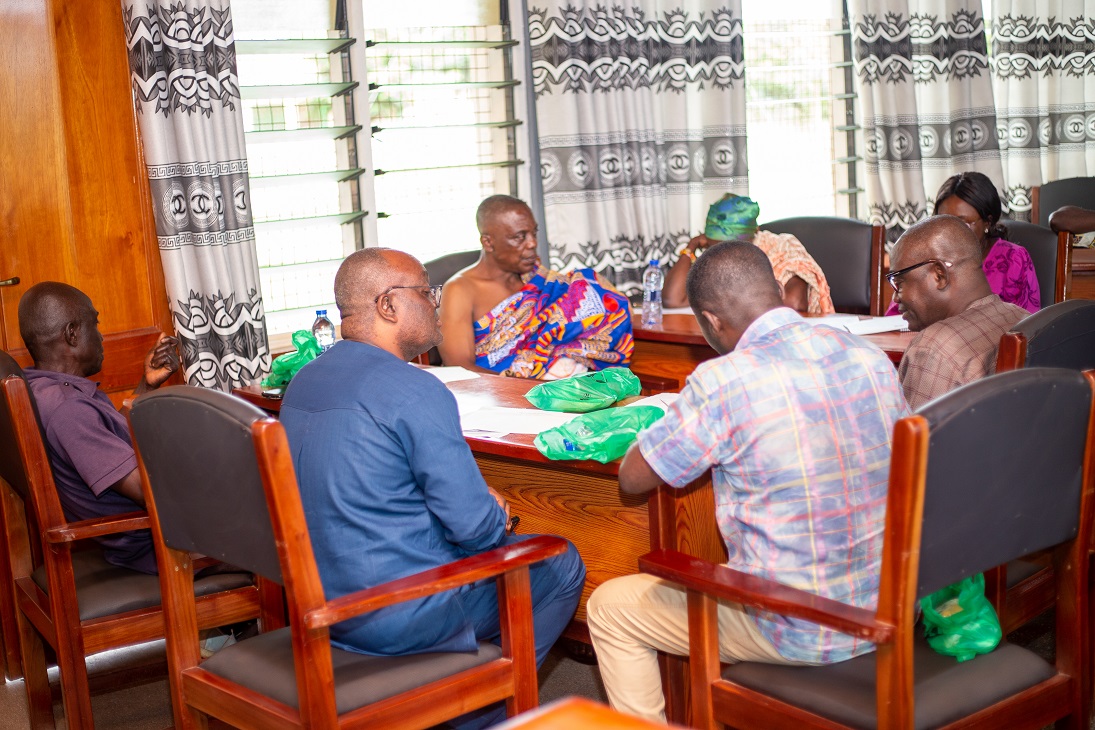
NAVIGATING GHANA'S COMPLEX LAND USE
RESCONI's In-Depth Exploration of Mining, Agriculture and Forest Practices in Asutifi North and Atwima Mponua Districts.
The Resource Conservation Initiative (RESCONI) embarked on a transformative research project, titled "SUPPORT TO PROMOTE COMMUNITY RESILIENCE AND RIGHTS IN COMPETING LAND USE FOR MINING, AGRICULTURE, AND FOREST UTILIZATION IN GHANA." This ambitious initiative sought to unravel the intricacies surrounding land use in the context of mining, agriculture, and forest utilization in Ghana, focusing keenly on the Asutifi North and Atwima Mponua Districts. As the Ghanaian landscape grappled with competing demands on its land for mining, agriculture, and forest utilization, RESCONI identified the need for a comprehensive understanding of the challenges faced by local communities.
The research team, led by Dr Owusu Amponsah, dived into the Asutifi North and Atwima Mponua Districts, engaging deeply with community members and stakeholders to gather invaluable data and insights. Meticulous data collection defined RESCONI's approach, employing various methodologies to ensure a holistic understanding of the multifaceted issues. Through surveys, interviews, and on-the-ground observations, the team captured the diverse perspectives of community members, local authorities, and other key stakeholders. The primary objectives of the research were to identify and analyze the impact of mining, agriculture, and forest utilization on local communities in the Asutifi North and Atwima Mponua Districts, evaluate existing policies and regulations governing land use, and propose sustainable solutions that promote community resilience and protect rights in the face of competing land use interests.
RESCONI's commitment to community involvement was central to the research process. The team adopted a community-centric approach, ensuring that the voices of those directly affected by land use decisions were not only heard but also given prominence in shaping the research outcomes. As the research findings unfolded, RESCONI was eager to share valuable insights that could inform policy adjustments, community engagement strategies, and sustainable practices in land use. The journey to navigate the complexities of competing land use interests in Ghana became an ongoing one, with RESCONI remaining dedicated to fostering resilience and protecting the rights of local communities.
In conclusion, this research journey marked a pivotal moment for RESCONI, reinforcing its role as a leader in promoting sustainable land use practices and community well-being in Ghana. The past tense of this essay reflects the accomplished stages of the project, while the future tense underscores RESCONI's ongoing commitment to positive change in the realm of land use challenges.










